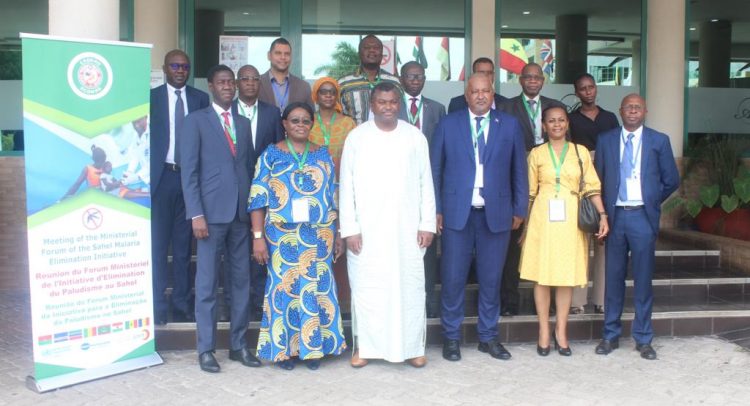The participants in a photo after the opening
The World Health Organisation Regional Office for Africa (WHO-AFRO) says investments in malaria elimination has stalled since 2012.
According to the health organization, both domestic and external investment in malaria has remained at the same levels since 2012 with real terms per capita investment in malaria declining from $2.84 to $2.62 per person.
“While COVID-19 disrupted routine health service delivery and has contributed to an increase in malaria cases and deaths, evidence of stalled progress precedes the pandemic,” said Dr. Matshidiso Moeti in a speech read on her behalf at the Ministerial Forum on the Sahel Malaria Elimination Initiative in Accra.
She said low domestic funding of malaria prevention and control compounds the low per capita financing, adding that the domestic financing as a percentage of overall investment in malaria prevention and control is estimated at 31per cent.
Dr. Moeti said limited access to health services, declined use of insecticide-treated nets from 56% to 49% since 2017 and the threat of insecticide resistance is compounding the challenge.
“We are also contending with emergence of Plasmodium falciparum parasite gene deletions that render our rapid diagnostic tests incapable of detecting parasites, increasing false negative malaria tests. The consequence is a possible rise in severe malaria cases and deaths,” she added.
She, thus, called for an intersectoral collaboration and strong leadership on health as they are critical in sustaining the fight against malaria.
“We need to establish sub-regional networks of public health research institutions to assist us in supporting countries in translational local research and implementation. Many such partnerships exist but are fragmented across disease programmes. We should aim to leverage these resources and focus on a more integrated, locally- tailored people-centred response,” she added.
The meeting held on the theme: “Strengthening the Sahel Malaria Elimination Initiative: Stock-Taking After Three Years”, afforded the 8-member nations’ representatives the platform to discuss current interventions, opportunities in integrated malaria management and the implementation of the national level strategic plan.
Minister of Health and Social Protection, Dr. Arlindo Nascimento do Rosário, in his keynote address appreciated the technical and financial support provided by West African Health Organisation (WAHO) and WHO AFRO to fight malaria.
He said through the resolve, solidarity, investments, and inspiring efforts of malaria-endemic countries, ‘we have seen a 27% reduction in malaria incidence and a 49% reduction in related deaths between 2000 to 2020 even accounting for the effects of the COVID-19 pandemic.’
Dr. Nascimento do Rosário indicated that over 27 million cases and thousands of malaria related deaths were averted in 2021.
He also noted that the RTS, S malaria vaccine has been administered in Ghana, Kenya and Malawi, with about 1 million children vaccinated in these pilot countries.
He, however, stressed that about 30 percent of the population in the Sahel are still affected by malaria hence the need for domestic fund mobilisation in a sustainable manner to effectively fight the disease.
African Leaders Malaria Alliance (ALMA) Special Ambassador, Anthony Okara said ALMA is keen to see the ultimate goal of malaria elimination realised here in the Sahel region and around the world.
Mr. Okara said since the year 2000, working in solidarity and global partnership, ALMA has made historic progress against malaria – saving 10.6 million lives and averting 1.7 billion new malaria infections.
He said with the determination of the leadership of ALMA and commitment from its donors and development partners, the course of malaria across the Sahel region can be changed.
By Jamila Akweley Okertchiri

